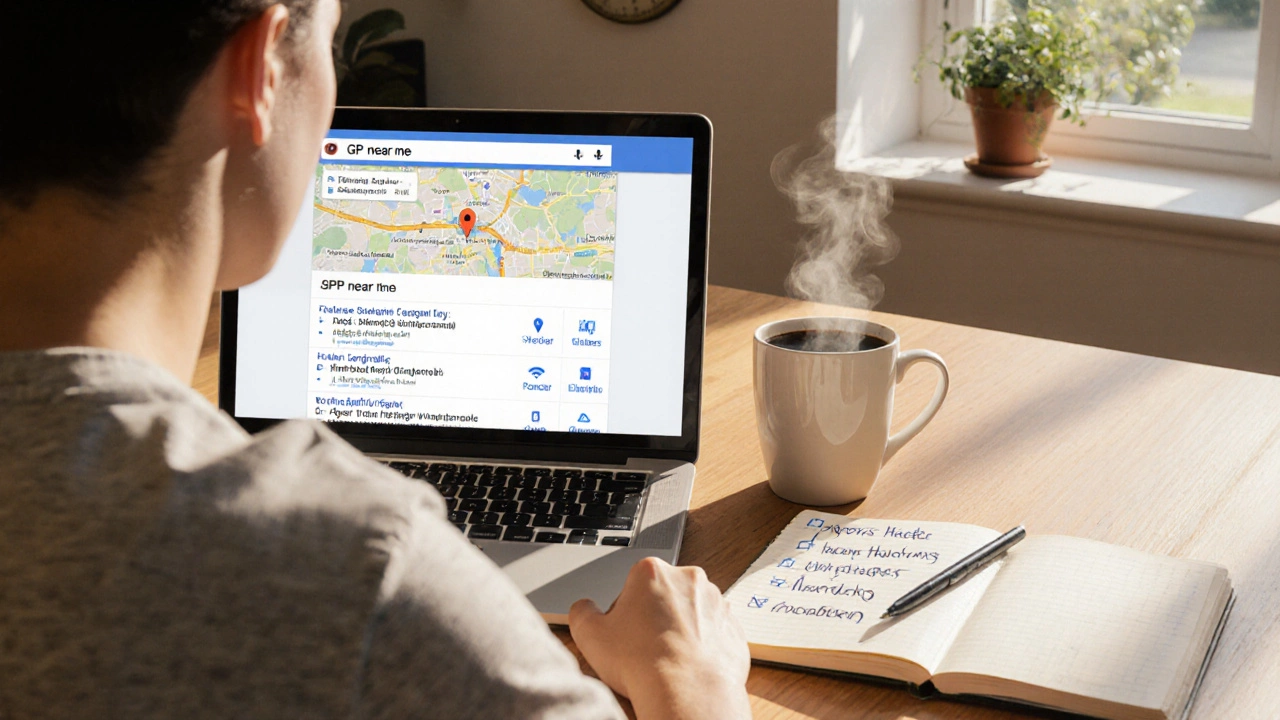General Practitioner: Your First Stop for Health Care
If you’ve ever wondered who to call when you feel off, the answer is usually a general practitioner – or GP for short. A GP is the doctor you see first for anything from a sore throat to a chronic condition. They keep records, guide you through the health system, and refer you to specialists when needed. Think of them as the hub of your medical journey.
In the UK, most people register with a GP practice that’s part of the NHS. Registration is free and gives you access to routine check‑ups, vaccinations, mental‑health support, and prescriptions. You don’t have to wait for an emergency room for everyday aches; a quick phone call or online booking can get you an appointment within days.
What a GP Can Help With
GPs handle a huge range of issues. Common reasons to book include:
- Cold, flu, or other infections
- Minor injuries like sprains or cuts
- Managing long‑term illnesses such as diabetes or hypertension
- Prescribing repeat medication
- Providing mental‑health advice and referrals
- Organising vaccinations and health screenings
Because they see a broad spectrum of patients, GPs are good at spotting early signs of serious conditions. If something looks beyond their expertise, they’ll arrange a specialist referral or order tests, keeping your care coordinated.
Choosing the Right GP for You
Even though most NHS practices are reliable, finding a GP that fits your style can improve your experience. Here’s a quick checklist:
- Location: Pick a practice within walking or short‑drive distance. Less travel means quicker appointments.
- Opening hours: Some clinics offer evening or weekend slots, which is handy if you work regular hours.
- Online services: Look for practices with e‑prescriptions, video calls, and easy online booking.
- Patient reviews: A quick read of local forums can reveal how friendly the staff are and how long waiting times usually are.
- Special interests: Some GPs focus on sports injuries, children’s health, or chronic disease management. Choose one that matches your needs.
Switching GP practices is simple: fill out a registration form at the new practice and they’ll handle the transfer of your records. Just make sure you’ve completed any ongoing treatment plans before you move.
When you call to book, be clear about why you need to be seen. Mention any urgent symptoms (like chest pain or sudden swelling) so the staff can prioritize you. If you can’t get a slot soon enough, ask for a same‑day or “same‑week” appointment – many practices keep a few slots open for urgent cases.
Remember, the GP is your health ally, not just a gatekeeper. Building a good relationship means sharing your concerns honestly and asking questions about treatment options. If you ever feel confused about a prescription or a referral, don’t hesitate to ask for clarification – a good GP will take the time to explain.
In short, a general practitioner is your go‑to for everyday health, preventive care, and navigating the wider medical system. Choose a practice that’s convenient, offers the services you need, and makes you feel comfortable. With the right GP, staying on top of your health becomes a lot easier.
What Does GP Doctor Mean? A Simple Guide to General Practitioners
A GP doctor, or general practitioner, is your main healthcare provider for everyday health issues. They prevent illness, manage chronic conditions, and refer you to specialists. Knowing how to find and work with a GP can save you time, money, and stress.
How to Find a Good GP Near You - Step‑by‑Step Guide
Learn a practical, step‑by‑step way to locate a reliable GP near you, covering directories, accreditation, reviews, insurance and trial visits.
GP Prescriptions: What You Really Need to Know
Understanding what a GP can prescribe is crucial for anyone visiting their local doctor's office. From antibiotics for an infection to medication for chronic conditions like asthma or hypertension, GPs are equipped to handle a variety of health issues. They can also provide preventive care advice and vaccinations. This article explores the range of medications and treatments available through your GP, making it easier to navigate your next appointment.
Why Visit Your GP: The Practical Benefits of a Local Doctor
Visiting a GP isn't just for when you're feeling unwell; it's a cornerstone of proactive health management. From personalized health advice to monitoring chronic conditions, GPs provide critical healthcare services. Regular visits can prevent issues before they start and are essential for early detection of potential problems. Knowing when to see a GP, whether it's for a routine check-up or an unexpected concern, can significantly impact your overall health and quality of life.
Understanding the Role of a General Practitioner in Daily Healthcare
General practitioners (GPs) play a crucial role in our healthcare system as the first point of contact for individuals seeking medical attention. GPs provide comprehensive health care, manage chronic illnesses, and coordinate with specialists when necessary. They play an essential role in health education and prevention, helping detect conditions early and reducing the risk of serious diseases. Understanding the importance of a GP can significantly enhance anyone's approach to maintaining health and wellness.





